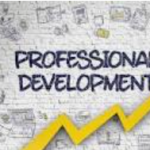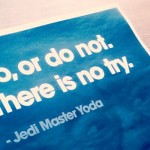Long before being told so by the new generation of privilege shamers, I knew that the comfort in which I grew up and my smooth entry into adult independence, resulted not only from having parents who played by the rules, worked hard, and lived moderately but also from the fact the playing field favored, unfairly, my race.
So, the whole idea of “claiming” or “checking” my privilege completely put me put off. Those claiming their privilege came off as egocentric and self-righteous: “Look at me! See how self-aware I am!” At a book study once, a veteran teacher referred to how lucky she was to have grown up in a comfortable situation. A much younger colleague praised her and said it was soooo important that everyone claims their privilege.
The motive behind the movement, at least in education circles, is to create empathy. The end in mind is that through greater empathy we can create more equitable schools. And the presumption is that one can’t develop empathy for another without fearless self-examination.
Now, it’s not that there’s nothing to that. I freely repeat the meme that you can’t walk in another’s shoes until you take off your own. But there are several problems with this approach.
For example, a common professional development exercise has everyone line up and take one step forward or one step back depending on whether they’ve experienced good things or bad things that are read off a list. The good things include items like, “Both my parents went to college.” The bad things include things like, “A friend in high school died violently.”
Going into the activity, at least for the first time, it’s easy to expect that everyone will move forward and backward about the same number of times and end up about even. Instead, one group keeps getting farther ahead while another group keeps getting farther behind, leaving a big gap. It can be an eye-opener, no doubt, and isn’t an entirely useless activity.
But the activity only feels like it’s creating empathy and can easily backfire. For example, someone can say, fairly, “Hey, this proves that no matter our past, we ended up here together, so what’s the big deal?” Arguments can break out as to the cause of the gap. Some will say that it illustrates the accumulation of the rewards brought by modest living in families who put building better lives for their children first. Others believe the gap illustrates that one group only got ahead by oppressing or exploiting the other.
Ultimately, the exercise only points out that lots of people come from crappy circumstances and others don’t, which pretty much everyone knew to begin with. It does nothing to teach what it’s like to actually live a different life. And I don’t see how it inspires much action.
Here’s what I mean. In a Jo Nesbo crime novel, a character describes compassion as sharing the feelings of another and empathy as sharing the experiences of another. Those definitions may not be technically correct, but they do point out an important distinction. Wherever you end up after stepping forward or backward in the empathy activity, you look around and definitely feel something for colleagues who land ahead or behind you. But you still haven’t walked in their shoes, no matter what you feel for them. And you mostly end up thinking about yourself.
In contrast to activities designed to build empathy through ego-tripping self-awareness, I know of no better empathy building professional development activity than reading a good book. (See The Practical Application of Fiction.) Seriously. Settle down for a few hours with Native Son, by Richard Wright, Nigger by Dick Gregory, Strength in What Remains by Tracy Kidder, Cry the Beloved Country by Alan Paton, or Why We Can’t Wait by Martin Luther King Jr., and you will experience systemic racism, bigotry, oppression, and exploitation as much as can anyone who hasn’t faced those evils first hand.
And that will inspire you to work for more equity in education far more than walking forward and backward in your school’s library.










Comments 15
I absolutely love where you end up with this one. Reading great literature engages the imagination in a way that few PD activities really can.
Bingo.
Sandy- thought provoking blog. I challenge your thoughts a bit here that equity work goes beyond empathy. The National Equity Project’s (2016) belief is that there is more power in leading from the inside-out vs the outside-in. There are systems, patterns, and processes that perpetuate what Hammond (2017) refers to as systematic racialism that can be altered, reversed, and changed on paper or in theory. However, we must examine those below the green line variables (Zuieback & Dalmau) such as relationships, identity, and information in organization that are still at play no matter the structures in place to halt inequities. In my experience, I must understand my own identity and to better understand my role in change. I think the key is to create safe spaces where we can get past the shame to develop self-awareness leading to understand systematic oppression in our own contexts. Understanding ourselves and contexts leads to building our capacity to facilitate change. I do agree that surface level activities perpetuating shame will not move the marker forward in terms of developing our skills as leaders for equity.
I agree with Mary. I recently participated in the “walk” you refer to. In the right setting, these types of activities can be very powerful in fostering communication among colleagues and students about the barriers we may have to overcome, what we can control vs. what we can’t, and making ourselves and others aware of some of the biases that exist. I am sorry if you haven’t had a positive experience with this activity. I hope you have the opportunity in a safe and positive place to repeat it and truly grow as I have.
Mary and Leah, thank you for you comments – and pushing my thinking. If the empathy walk is a beginning to build relationships, I see it as having much more value. But when it’s and end in itself, I think it’s really weak. I’m a little less on board, Mary, with the need to self-inspect to build capacity to change, compared to learning the impact of systematic racism on someone who’s experienced it. I will look for the time to check out your references. Thanks again.
I’d like to offer another way of building empathy, and that is through building relationships and listening to each others stories. Any activity that is designed to build empathy will fall flat if a culture of relationship-building and sustaining is not in place. Thanks for shining a light on this.
That’s what the walk activity misses, in my opinion. I’m really close to a teacher who grow up in poverty in dangerous conditions. Listening to them talk, just telling stories in casual conversation has opened my eyes more than any PD I’ve attended.
Sandy – With you permission I am going to cite you in my next homework assignment.
Thank you for sharing your wisdom …
Absolutely. You always have my permission.
STIRRING THE POT AGAIN!
Thanks for the perspective, Sandy. I can’t help but be amused at how much you hate this empathy walk. I just did it for the first time last April in my Foster/Adoption class. For me, it was eye-opening; it remains to be one of the most important and valuable lessons I learned.
Here’s the thing– that’s how I feel about it NOW. At the time, the lesson was uncomfortable. I started out laughing and high-fiving friends in the class, and slowly ended up farther and farther away from everyone, including my HUSBAND as well. At the end, I felt humiliated, but then I had to CHECK MYSELF and do a perspective shift. Maybe I was in the back of that class in Flagstaff, AZ. Where would I have been if I were in a line in Detroit?
Empathy is about understanding and I think when you truly want to understand anything, you seek as many sources, experiences, and perspectives as possible.
Fair enough. When I’ve had to do the Empathy walk, it’s always been in the context of a mandated PD, many of us had done it before, and there there was a strong suggestion on part of the facilitators that no one knew about empathy but them. I’m glad you had a more enlightening experience than me.
Thank you for sharing this story. I feel like I need to say it…no one should feel bad for growing up in a safe, loving, and productive household. Period. That is what we are ALL striving for. IT should NOT be seen as a privilege. It should be seen as a human right. Should we be aware of how our experiences or lack thereof influence our perspectives and interpretations? Yes. Should we deal with the ongoing impacts of greed and the -isms? Yes. Do we do our part to be “better”? Yes.
Oh, man, if I implied I felt sorry for the environment I grew up in, I really blew it. My gratitude to may parents is immeasurable. Thanks for pointing that out. I’d answer a conditional yes to your first question and a solid yes to the other two. The condition would be that the awareness should not be an end in itself, otherwise it too much seems like “ego-surfing.” (I just learned that term this morning.)
During my initial teacher prep program, we had to take a class called “Culture in the Schools.” It was meant to talk about equity (and inequity really) based on race, socio-economic status, and opportunity in schools across the US. I think back on that class as being highly traumatic. Perhaps the discussion leader was just lacking in skills, but the discussion topics opened up very raw wounds in class participants and seemed to stir the pot instead of finding common ground. I remember so many people crying in that class! Overall, I don’t think much empathy came from those discussions, but I definitely found the class eye opening. I think you’ve got a great point about how literature can open up our understanding of other people’s experiences. Anytime we can read or speak honestly with others about their experiences (and truly set aside our own), I think we can grow as human beings.
Exactly right, I think. The presenter has so much to do with the impact and the future attitude of the participants toward the topic. A former colleague once taught in a low social economical district. During the teacher induction, they loaded the new teachers on a bus and toured the district so the new hires could see, literally, where their students came from. It sounded like one of the best practices I’ve ever heard of.